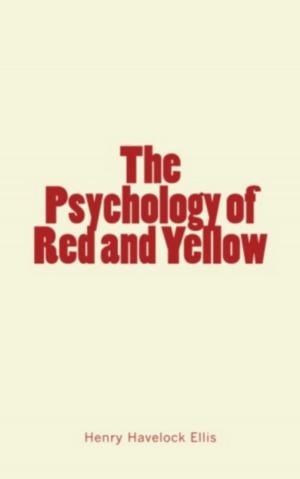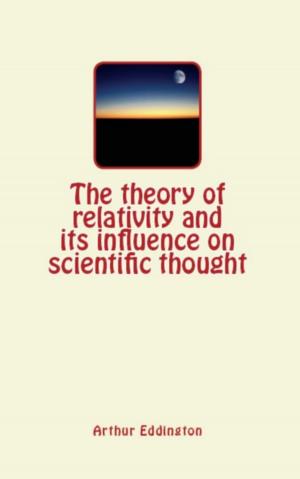| Author: | John Hughlings Jackson | ISBN: | 9782366596052 |
| Publisher: | Literature and Knowledge Publishing | Publication: | April 12, 2018 |
| Imprint: | Literature and Knowledge Publishing | Language: | English |
| Author: | John Hughlings Jackson |
| ISBN: | 9782366596052 |
| Publisher: | Literature and Knowledge Publishing |
| Publication: | April 12, 2018 |
| Imprint: | Literature and Knowledge Publishing |
| Language: | English |
Punning is well worthy of the psychologist's attention. I seriously mean that the analysis of puns is a simple way of beginning the methodical analysis of the process of normal and abnormal mentation. This, I think, I can easily show. Vision is stereoscopic: in a sense it is slightly diplopic, for there are two dissimilar images, although there seems to be but one external object, as we call it. To borrow the ophthalmological term, we can say that mentation is "stereoscopic"; always subject-object, although we often speak of it as single ("states of consciousness," etc.). Just as there is visual diplopia, so there is "mental diplopia," or, as it is commonly called, "double consciousness." Now I come back to punning. We all have "mental diplopia" when hearing the answer to a riddle which depends on a pun — "When is a little girl not a little girl?" Answer: "When she is a little horse (hoarse)." The feeble amusement we have in the slightly morbid mental state thus induced is from the incongruous elements of a "mental diplopia." The word "hoarse" rouses in us the idea of a little girl who has taken cold, and the same-sounding word "horse" rouses in us the idea of a well-known quadruped at the same time. We have the sensation of complete resemblance with the sense of vast difference. Here is, I submit, a caricature of the normal process of all mentation. The process of all thought is "stereoscopic" or "diplopic," being the tracing of relations of likeness and unlikeness. To call punning a slightly morbid mental state may be taken as a small joke, but I do not think it very extravagant to describe it so; it certainly is not if it be a caricature of normal mentation. A miser has been defined as an amateur pauper; the habitual drunkard is certainly an amateur lunatic; and in the same style of speaking we may say that—well, we will say that punning is playing at being foolish; it is only morbid in that slender sense...
Punning is well worthy of the psychologist's attention. I seriously mean that the analysis of puns is a simple way of beginning the methodical analysis of the process of normal and abnormal mentation. This, I think, I can easily show. Vision is stereoscopic: in a sense it is slightly diplopic, for there are two dissimilar images, although there seems to be but one external object, as we call it. To borrow the ophthalmological term, we can say that mentation is "stereoscopic"; always subject-object, although we often speak of it as single ("states of consciousness," etc.). Just as there is visual diplopia, so there is "mental diplopia," or, as it is commonly called, "double consciousness." Now I come back to punning. We all have "mental diplopia" when hearing the answer to a riddle which depends on a pun — "When is a little girl not a little girl?" Answer: "When she is a little horse (hoarse)." The feeble amusement we have in the slightly morbid mental state thus induced is from the incongruous elements of a "mental diplopia." The word "hoarse" rouses in us the idea of a little girl who has taken cold, and the same-sounding word "horse" rouses in us the idea of a well-known quadruped at the same time. We have the sensation of complete resemblance with the sense of vast difference. Here is, I submit, a caricature of the normal process of all mentation. The process of all thought is "stereoscopic" or "diplopic," being the tracing of relations of likeness and unlikeness. To call punning a slightly morbid mental state may be taken as a small joke, but I do not think it very extravagant to describe it so; it certainly is not if it be a caricature of normal mentation. A miser has been defined as an amateur pauper; the habitual drunkard is certainly an amateur lunatic; and in the same style of speaking we may say that—well, we will say that punning is playing at being foolish; it is only morbid in that slender sense...















